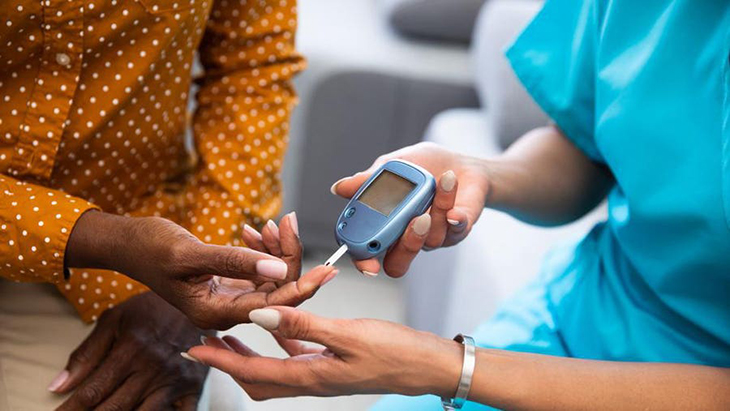
New research findings mark a significant breakthrough, revealing that individuals who achieve a temporary “reversal” of type 2 diabetes through intensive lifestyle changes experience long-term reductions in the risk of heart and kidney diseases. While the term “reversal” lacks medical precision, experts prefer the term “remission,” as defined for type 2 diabetes when an individual’s A1C levels—indicative of blood sugar levels over several months—drop below the diabetic threshold (less than 6.5 percent) without the aid of blood sugar-lowering medication.
This study underscores the importance of celebrating even temporary achievements in diabetes management. Despite the possibility of diabetes reoccurring, the sustained decline in heart and kidney disease risk is a noteworthy outcome. It suggests that interventions aimed at achieving remission, even if transient, yield substantial long-term health benefits beyond glycemic control. By focusing on intensive lifestyle modifications, individuals can potentially mitigate the complications associated with diabetes, enhancing overall health and well-being in the process.
“There’s a lot of interest in the idea of remission of type 2 diabetes in the news these days. This is the first study to ask the questions ‘What happens after that? What happens after people achieve remission?’” explained lead author Edward W Gregg, PhD. He is a professor at the School of Public Health at Imperial College in London.
“The main takeaway is that lifestyle-based efforts to achieve type 2 diabetes remission are associated with extended health benefits long beyond remission,” Dr. Gregg shared.
Living with type 2 diabetes over an extended period can lead to various enduring complications, including detrimental effects on the heart, blood vessels, kidneys, and nerves, potentially resulting in vision impairment and diabetic neuropathy.
In a research endeavor dubbed Look AHEAD, individuals who attained remission from diabetes showcased promising outcomes after 12 years. Published in Diabetologia, the recent report reveals a 40 percent reduction in the risk of cardiovascular disease and a 33 percent decrease in kidney disease risk among those who achieved remission.
Gregg, the study’s lead, attributes these positive trends to several factors observed in the lifestyle intervention arm of the trial. Notably, weight loss, enhanced fitness levels, and reductions in A1C and low-density lipoprotein (LDL) cholesterol likely contributed to these favorable outcomes.
Moreover, Gregg underscores the significance of the duration of remission in determining risk reduction associated with diabetes. Those who maintained remission for at least four years experienced even greater benefits, with reductions of 55 percent in kidney disease risk and 49 percent in cardiovascular disease risk. This underscores the importance of sustained efforts in managing diabetes-related risks for long-term health outcomes.
“This is the first study where we’ve shown the extended effects of remission on long-term diabetes complications. Our findings are very encouraging.”
Remission Can be Difficult, but Even a Temporary One Reaps Benefits
The Look AHEAD study engaged around 5,000 individuals diagnosed with type 2 diabetes, splitting them into two groups. One cohort underwent an intensive lifestyle intervention, comprising weekly group and individual sessions for the initial six months. The primary focus was on reducing fat and total calorie intake by up to 1,800 calories daily, coupled with increasing physical activity to approximately 175 minutes per week. Session frequency tapered off as the trial progressed, with participants attending training sessions biennially by the study’s conclusion.
The other group received “diabetes education and support,” involving three yearly group sessions emphasizing dietary and physical activity goals.
Results from the study revealed that merely 11 percent of type 2 diabetes patients enrolled in the intervention arm achieved remission within the first year. Over the 12-year duration of the study, this remission rate further declined to a mere 4 percent. Notably, individuals with a shorter duration of type 2 diabetes, lower initial A1C levels, and substantial weight loss were more likely to experience remission.
Dr. Gregg underscored the challenging nature of achieving remission, highlighting its non-permanent nature.
“The majority of patients with type 2 diabetes are not going to achieve remission, but they can still gain these same health benefits through other means, such as managing risk factors well — blood pressure, glycemia (high blood sugar) and cholesterol, stopping smoking and things like that.”
“A healthy lifestyle is good at any point with type 2 diabetes. It’s going to have a benefit whether you achieve remission or not.”
As an illustration, Gregg noted that a few of the patients in the less intensive “diabetes, education and support arm” of Look AHEAD also achieved remission.
Remission Can be Achieved in Any Way
Fifteen years ago, the Look AHEAD initiative took flight in response to the groundbreaking discovery that bariatric surgery could induce remission of type 2 diabetes, as elucidated in an article on Diabetes Daily. Originating from a desire to ascertain whether similar outcomes could be achieved solely through lifestyle changes, Look AHEAD embarked on its journey.
Since its inception, the initiative has delved into various avenues for achieving remission of diabetes. Alongside traditional interventions like bariatric surgery, contemporary methods have emerged, such as very low-carbohydrate diets, extensively discussed on Diabetes Daily, and innovative approaches like meal replacement, exemplified by the ongoing DiRECT trial, which explores its protocol. Additionally, intermittent fasting has garnered attention as another potential method.
Gregg underscores that the mode of remission attainment is secondary; the primary aim is liberation from reliance on all type 2 diabetes medications.
“[Look AHEAD is] the first intervention study to associate remission with reduction of diabetes-related complications, and this is encouraging news for those who can achieve remission from type 2 diabetes.”
And remission is still important even if it’s only temporary, he said, “Our findings suggest any success with remission is associated with later health benefits.”
Can Ozempic and Mounjaro Help Achieve Remission?
Gregg cautiously addresses the question of whether newer GLP-1 agonist drugs like semaglutide (Ozempic) or tirzepatide (Mounjaro) should be factored into considerations of remission. These medications, initially approved for type 2 diabetes to lower blood sugar levels, offer significant benefits akin to lifestyle interventions studied in trials such as Look AHEAD.
GLP-1 agonists have demonstrated remarkable outcomes, including substantial weight loss ranging from 15 to 20 percent of body weight, a result comparable to that achieved by bariatric surgery. Moreover, research indicates they provide protective effects on the heart and kidneys, as reported by Diabetes Daily.
Gregg explains that from a technical standpoint, utilizing a GLP-1 agonist wouldn’t meet the criteria for achieving what is commonly referred to as type 2 diabetes remission. This term typically denotes the cessation of all blood sugar-lowering medications.
And although people can now take GLP-1 agonists for obesity only, even if they don’t have diabetes, he said, “I guess it’s a judgment call. Whether you call a GLP-1 agonist a diabetes medication or not.” But had GLP-1 agonists been available when Look AHEAD had been conducted and a patient was taking one, “we would not have called that remission,” he also added.



